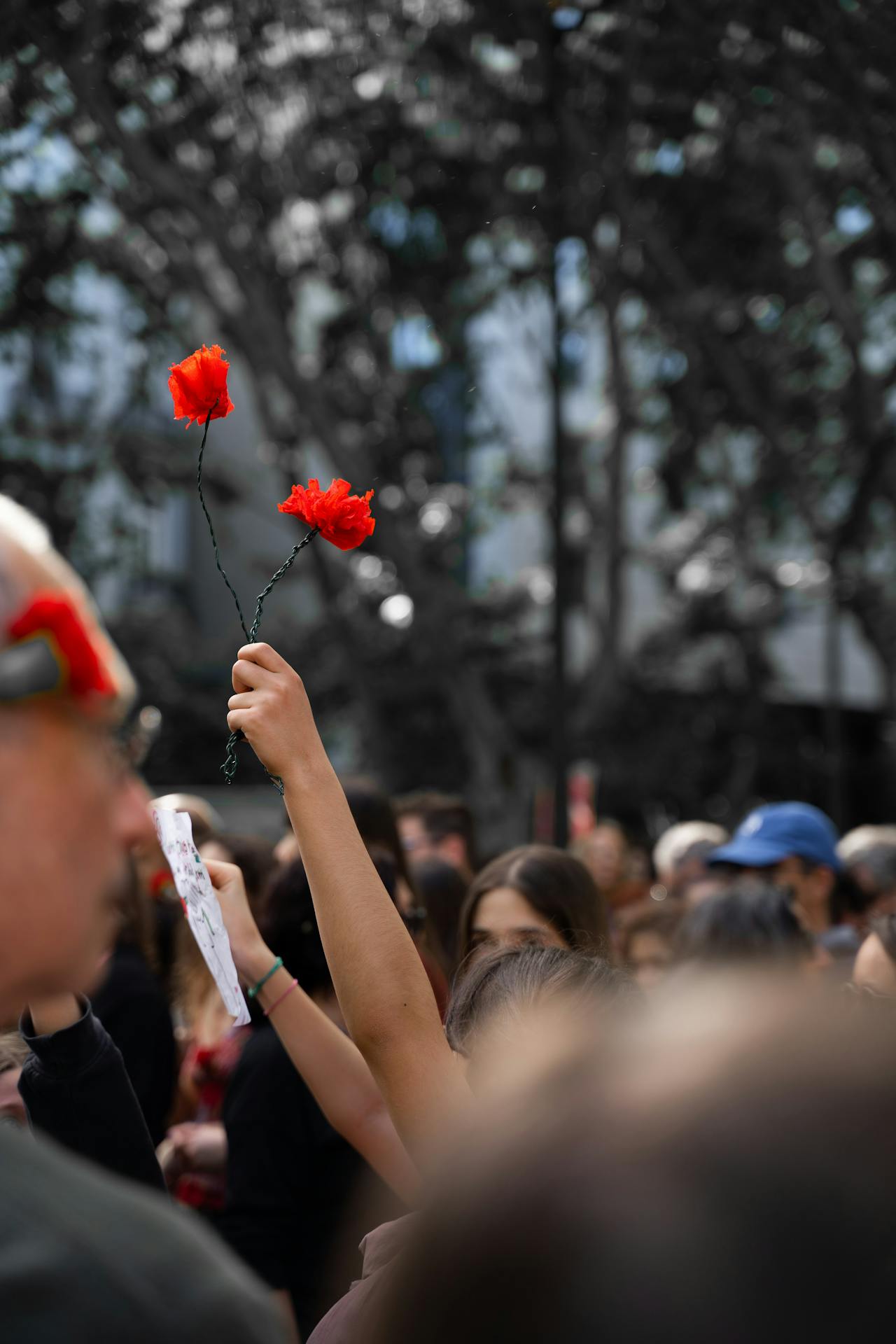Celeste Caeiro, known as Portugal’s “Carnations Lady,” passed away at the age of 91, leaving behind a legacy tied to the Carnation Revolution of 1974. Her act of handing out carnations to soldiers during the coup became a symbol of peace and resistance against dictatorship, marking a pivotal moment in Portuguese history.
The Carnation Revolution
The Carnation Revolution, which took place on April 25, 1974, was a nearly bloodless coup that overthrew Portugal’s Estado Novo regime, a dictatorship that had lasted for nearly 50 years. The revolution is celebrated for its peaceful nature, with the carnation flower becoming a symbol of the movement.
Celeste Caeiro’s Role
On the day of the coup, Caeiro was working at a Lisbon restaurant that was set to celebrate its anniversary. The owners had purchased carnations for the staff, but the coup forced the cancellation of the festivities. Instead, Caeiro took the flowers home, where her life would take an unexpected turn.
In a moment of spontaneity, she began handing out the flowers to soldiers who were rebelling against the regime. This simple act of kindness resonated deeply, as soldiers began placing the flowers in their rifles and tanks, creating a powerful visual that would be immortalized in photographs around the world.
As Portugal reflects on her life, the memory of her kindness and courage will remain a cherished part of the nation’s history.










